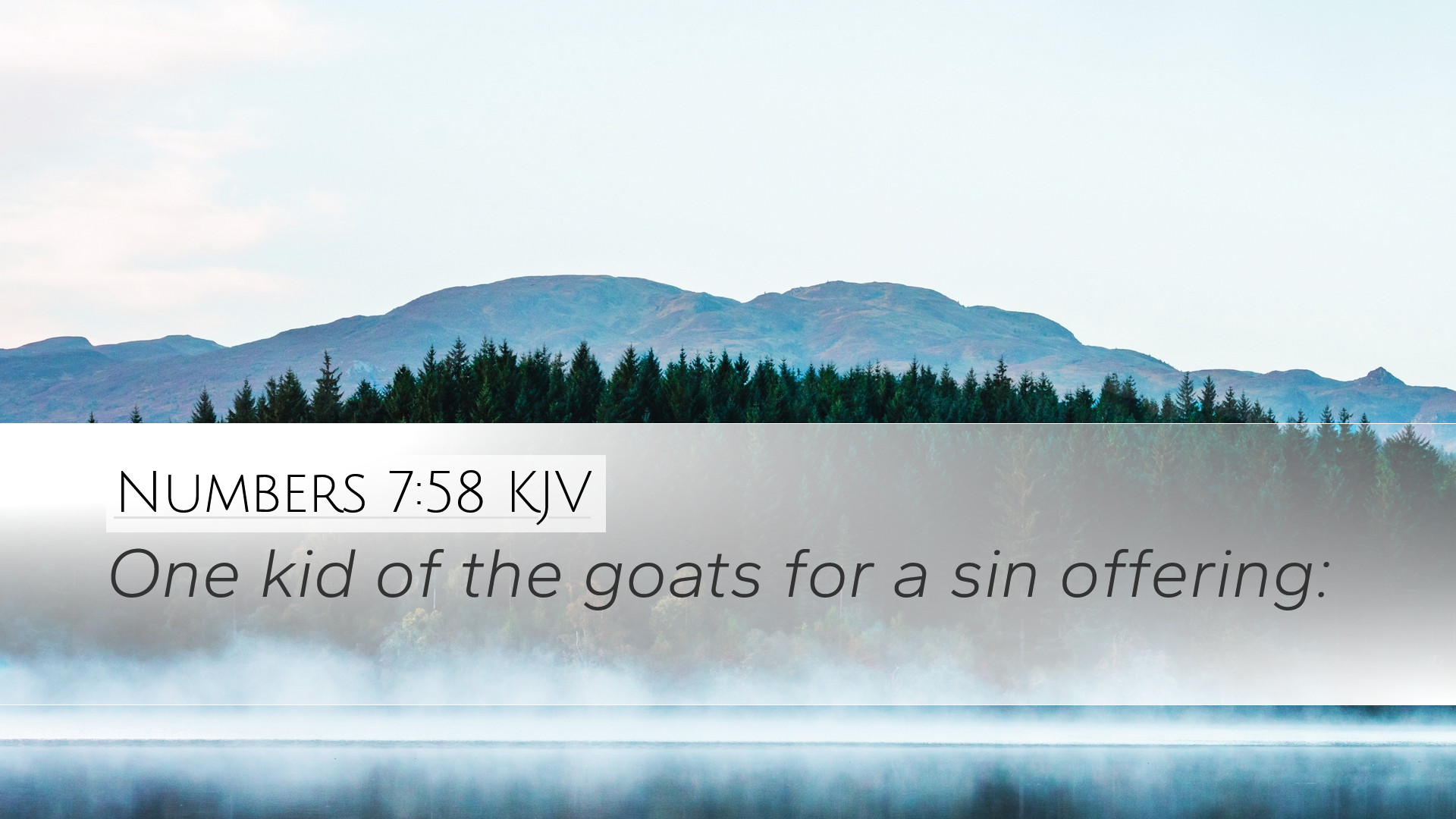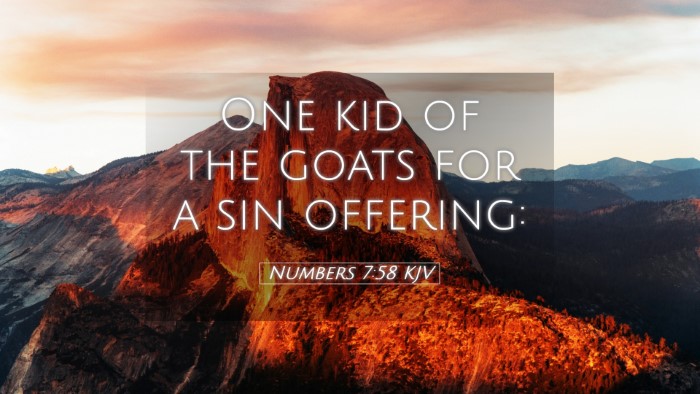Commentary on Numbers 7:58
Text of Numbers 7:58 (KJV): "And for the offering of peace offerings of the congregation, there was a cow and one ram, and for a meat offering, flour mingled with oil, and one vial of oil."
In examining Numbers 7:58, we encounter a critical moment in the rituals conducted during the dedication of the Tabernacle. This verse is part of the detailed account of offerings made by the leaders of Israel during their journey in the wilderness. The offerings described provide significant insight into the nature of worship during this formative period in Israel's history.
Historical Context
The context of this verse is essential. It occurs during the time when Moses and the Israelites are established at the base of Mount Sinai, and the Tabernacle has been erected as a sacred space where God would dwell among His people. Each tribe presented offerings to God, which underscored their commitment to worship and obedience.
Observations from Matthew Henry
According to Matthew Henry, this verse reflects the communal aspect of worship within the Israelite community. He emphasizes that the offerings are for "the congregation," indicating that worship is not merely an individual act but a collective expression of faith. Henry interprets the peace offerings as a means of reconciliation and fellowship with God, suggesting that these offerings invite divine presence into the community.
Insights from Albert Barnes
Albert Barnes views the offerings detailed in this verse as representative of the various dimensions of worship required by God. He notes the variety in the sacrifices—a "cow and one ram"—which indicates the different levels of offerings depending on the situation and needs of the community. Barnes also points out that the inclusion of flour mingled with oil underscores the importance of purity and quality in offerings presented to God, reflecting the heart's intent behind the act of giving.
Reflection from Adam Clarke
Adam Clarke emphasizes the significance of the peace offering in the covenant community. He refers to the idea that peace offerings symbolize fellowship with God and among believers. Clarke further explains that the act of sharing such offerings with the priests and the congregation illustrates the communal nature of the faith, where the blessings received from God are intended to be enjoyed in community. The vial of oil represents the joy and gladness that accompanies acceptance before God—a theme prevalent throughout the biblical narrative.
Theological Implications
This verse and the offerings mentioned carry profound theological implications. First, it reflects the necessity of sacrifice in the approach to God—something that is echoed throughout Scripture. The peace offerings serve as a precursor to the ultimate sacrifice of Christ, who brings peace between God and humanity (Ephesians 2:14).
Additionally, the act of presenting offerings indicates the priorities within worship: it is not merely about the sacrifice itself but about the condition of the heart presenting the offering. This serves as a reminder to pastors and leaders in congregations today that God desires sincerity and community in worship practices.
Application for Contemporary Worship
For contemporary pastors and theologians, Numbers 7:58 provides insights into the structure and elements of worship. It challenges modern expressions to consider how they foster community, reconciliation, and genuine fellowship with God and one another. The diversity in offerings should inspire leaders to create spaces wherein various forms of worship can occur, fostering unity among diverse congregants.
Conclusion
In conclusion, the offerings outlined in Numbers 7:58 carry essential teachings about worship, community, and the relationship between God and His people. By drawing from the insights of established commentators like Matthew Henry, Albert Barnes, and Adam Clarke, we can appreciate the richness of Scripture in informing our understanding and practice of faith today. As God's people, engaged in collective worship, may we always strive to approach Him with sincerity, presenting our offerings from hearts aligned with His will.


